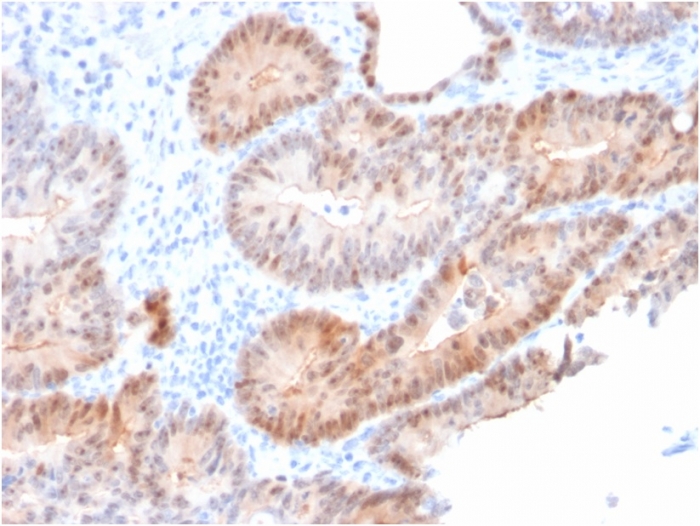Free Shipping in the U.S. for orders over $1000. Shop Now>>

Formalin-fixed, paraffin-embedded human Prostate Carcinoma stained with AKR1C2 Mouse Monoclonal Antibody (CPTC-AKR1C2-1).

Formalin-fixed, paraffin-embedded human Prostate Carcinoma stained with AKR1C2 Mouse Monoclonal Antibody (CPTC-AKR1C2-1).
DDH2 / AKR1C2 is a member of the aldo/keto reductase superfamily, which consists of more than 40 known enzymes and proteins. These enzymes catalyze the conversion of aldehydes and ketones to their corresponding alcohols by utilizing NADH and/or NADPH as cofactors. The enzymes display overlapping but distinct substrate specificity. This enzyme catalyzes the reaction of progesterone to the inactive form 20-alpha-hydroxy-progesterone.
There are no reviews yet.